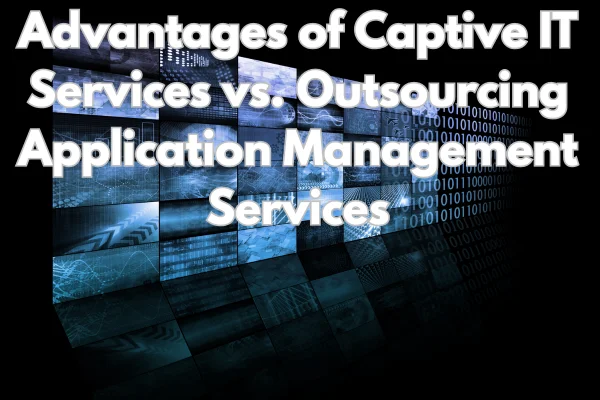
In today's rapidly evolving business landscape, where efficiency and agility are paramount, Enterprise Resource Planning (ERP) systems have emerged as a cornerstone for sustainable growth. At Itworks, we recognize the immense benefits of ERP solutions in revolutionizing how organizations operate, collaborate, and innovate. Join us on a journey to explore the numerous advantages that ERP brings to businesses of all sizes and industries.
Table of Contents
- Introduction
- Streamlined Operations with Centralized Data Management
- Enhanced Decision-Making Through Real-Time Insights
- Optimized Resource Utilization and Cost Efficiency
- Improved Customer Relationship Management (CRM)
- Facilitating Regulatory Compliance and Data Security
- Empowering Cross-Functional Collaboration
- Scalability to Accommodate Growth
- Mobility and Flexibility for Modern Workstyles
- Accelerating Business Processes
- Increasing Overall Productivity and Efficiency
- Eliminating Redundancies and Data Entry Errors
- Customization for Industry-Specific Needs
- Overcoming Implementation Challenges
- Conclusion
Introduction
In a digital age where businesses are faced with a constant influx of data and complexities, ERP emerges as a comprehensive solution that integrates various business processes into a unified system. From finance and human resources to supply chain management and beyond, ERP systems offer a wide array of benefits that contribute to improved efficiency, collaboration, and strategic decision-making.
Streamlined Operations with Centralized Data Management
One of the standout advantages of ERP is its ability to centralize an organization's data, eliminating data silos and fostering streamlined operations. With data residing in a single system, departments can seamlessly access and share information, leading to better communication and cross-functional collaboration. This, in turn, minimizes manual processes and reduces the risk of data discrepancies.
Enhanced Decision-Making Through Real-Time Insights
In the modern business landscape, timely and data-driven decisions are vital for success. ERP systems provide real-time insights by consolidating data from various sources. This empowers leadership with accurate and up-to-date information, enabling them to make informed choices that drive growth and innovation.
Optimized Resource Utilization and Cost Efficiency
ERP systems enable organizations to optimize their resource allocation and utilization. By providing visibility into resource availability and requirements, businesses can minimize overstaffing or underutilization, leading to significant cost savings. Additionally, the automation of processes reduces operational costs and enhances overall efficiency.
Improved Customer Relationship Management (CRM)
A robust ERP system can also enhance customer relationship management by providing a comprehensive view of customer interactions and transactions. This holistic view enables organizations to personalize their interactions, improve customer satisfaction, and build long-lasting relationships.
Facilitating Regulatory Compliance and Data Security
In an era of strict regulatory requirements and data breaches, ERP systems offer robust security features and compliance capabilities. Businesses can implement access controls, encryption, and audit trails to safeguard sensitive information, ensuring compliance with industry standards and regulations.
Empowering Cross-Functional Collaboration
ERP systems break down communication barriers by providing a platform for cross-functional collaboration. With data accessible to multiple departments, teams can collaborate on projects seamlessly, leading to improved efficiency and innovation across the organization.
Scalability to Accommodate Growth
As businesses expand and evolve, their systems need to accommodate increased demands. ERP systems are designed with scalability in mind, allowing organizations to add users, features, and modules as needed without disrupting day-to-day operations.
Mobility and Flexibility for Modern Workstyles
In the age of remote work and flexible schedules, ERP systems offer mobility features that enable employees to access data and perform tasks from anywhere. This flexibility enhances productivity and work-life balance, contributing to overall employee satisfaction.
Accelerating Business Processes
ERP systems automate various business processes, reducing manual intervention and the risk of errors. This acceleration of processes results in quicker response times, faster order fulfillment, and improved customer service.
Increasing Overall Productivity and Efficiency
By eliminating redundant tasks and automating workflows, ERP systems free up employees' time to focus on strategic initiatives. This increased productivity leads to more efficient operations and the ability to take on new challenges.
Eliminating Redundancies and Data Entry Errors
Data entry errors and redundant tasks can plague organizations, causing delays and inaccuracies. ERP systems minimize these issues by integrating processes and ensuring data consistency across various functions.
Customization for Industry-Specific Needs
Every industry has its unique requirements, and ERP systems can be customized to cater to these needs. Whether it's healthcare, manufacturing, or finance, businesses can configure their ERP to align with industry-specific processes and regulations.
Overcoming Implementation Challenges
While the benefits of ERP are undeniable, implementing such a system can present challenges. It's essential to address these challenges through proper planning, training, and change management to ensure a successful transition.
Conclusion
In a world where operational excellence and strategic decision-making are paramount, ERP systems provide a holistic solution that empowers businesses to thrive. From streamlining operations and enhancing collaboration to driving growth and innovation, the benefits of ERP are vast and impactful. Embracing ERP technology can pave the way for a future where organizations operate with efficiency, agility, and competitive advantage.
FAQs
1. What is an ERP system?
An ERP (Enterprise Resource Planning) system is a software solution that integrates various business processes and functions into a centralized platform, enabling streamlined operations and data-driven decision-making.
2. How does ERP enhance collaboration?
ERP systems break down communication barriers by providing real-time access to data across departments, facilitating cross-functional collaboration and innovation.
3. Can ERP systems be customized?
Yes, ERP systems can be customized to align with industry-specific processes and requirements, making them adaptable for various sectors such as manufacturing, healthcare, and finance.
4. What challenges can arise during ERP implementation?
ERP implementation can face challenges such as resistance to change, data migration issues, and integration complexities. These challenges can be mitigated through proper planning and change management strategies.
5. How does ERP contribute to cost efficiency?
ERP optimizes resource utilization, minimizes redundancies, and automates processes, leading to cost savings through reduced operational expenses and improved resource allocation.

 English
English














